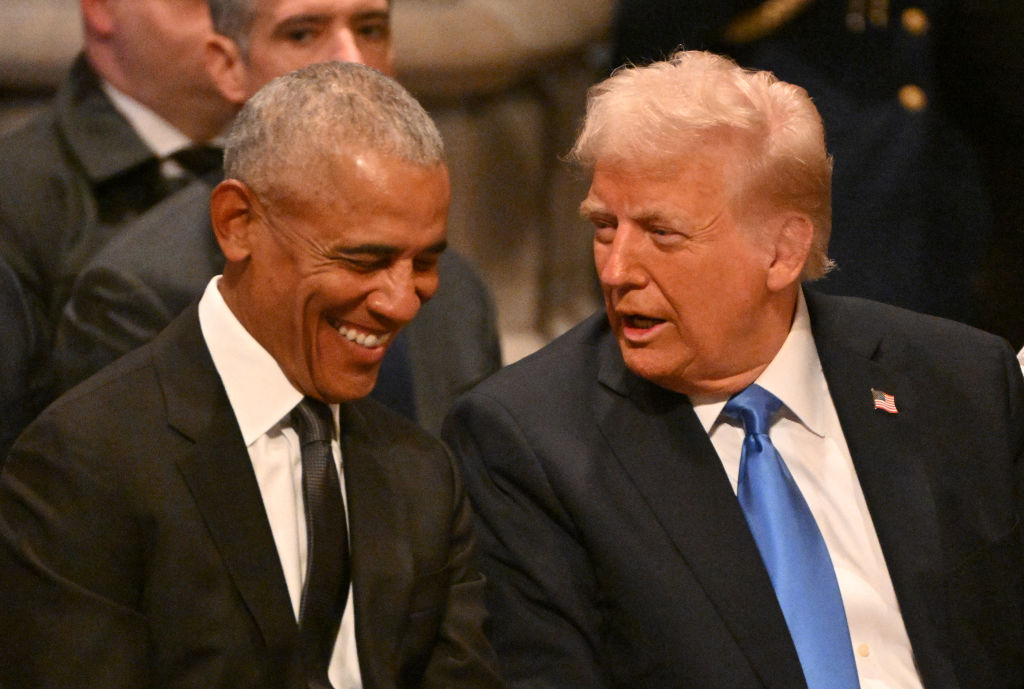At the last possible moment, after months of prevarication and with Russian troops on the brink of a major breakthrough in Ukraine, the US Congress voted to approve more than $61 billion worth of military assistance for Kyiv on Saturday afternoon. In a vote that a vocal minority of Republicans had desperately attempted to stop through procedural objections and threats to remove Speaker Mike Johnson, 210 Democrats and 101 Republicans finally joined to support Ukraine. A majority of Republicans — 112 Congress members — voted against.
The money comes at a critical moment in Ukraine’s war effort. With US aid stalled in Congress since last October and European allies unable to source or manufacture munitions in time, front line units have reported a desperate shortage of artillery shells, with Russians firing up to six shells for every one the Ukrainians shot back. More importantly, a lack of missile defenses has seen Russian ballistic and cruise missiles almost entirely destroy the electricity generation infrastructure of Kharkiv, Ukraine’s second city, and severely damage that of Kyiv. Apparently random strikes on residential buildings across Ukraine since the New Year have left hundreds of civilians dead. The increasingly despairing Ukrainian president Volodimir Zelensky warned last week than if America did not resume its aid, “we will be defeated.”
While the Americans have been arguing, our children have been dying,’ says Mikhail Spivak, a Kyiv-based IT engineer
Now the race is on to reactivate the massive logistical effort that saw some $60 billion in US military materiel delivered to Ukraine between April 2022 and the summer of last year. The Department of Defense announced even before the vote that it had a detailed plan to mobilize stockpiles of weaponry for Ukraine’s beleaguered front lines. “The vital US aid bill passed today by the House will keep the war from expanding, save thousands and thousands of lives and help both of our nations to become stronger. Just peace and security can only be attained through strength,” said Zelensky in a statement immediately after the bill passed. “Democracy and freedom will always have global significance and will never fail as long as America helps to protect it.”
But for many ordinary Ukrainians, the aid is too little, too late. “While the Americans have been arguing, our children have been dying,” says Mikhail Spivak, a Kyiv-based IT engineer who now develops drones to support infantry operations. “Of course it is good that more weapons will come. But we know our place now, we know the value [the US places on] Ukrainian lives. And it’s way below Israeli lives.” A separate bill approving funding for Israel passed easily in Congress Saturday, with 365 in favor and only fifty-seven opposed.
Early in the war, support for Ukraine had broad bipartisan support in the US. But over the second half of 2023 as Donald Trump emerged as the front runner for the Republican presidential nomination a small minority of House Republicans opposed to continued aid to Ukraine swelled to a majority. In August 2023, Trump claimed that he would end the Ukrainian war “in a day.” One motive for Trump’s opposition to aid to Ukraine has been, according to a senior US advisor to several Eastern European presidents who meets Trump’s team regularly, that “he wants to deny Biden a victory in Ukraine.” Another motive was suggested on Twitter last week by Trump’s son, Donald Jr., who accused Democrats of wishing to “hurt my father’s ability to negotiate an end to the war between Russia and Ukraine.” Trump also called on European allies to “match the money put in” by the US to help Ukraine. In reality, as of January 2024 EU institutions have committed $93.2 billion in total military, financial and humanitarian aid to Ukraine while the US has given $74.3 billion, though a far greater share of the US money has gone directly towards military aid.
At the same time many Republicans, most prominently Congresswoman Marjorie Taylor Greene, have repeatedly denounced Ukrainians as “Nazis.” Greene even attempted an amendment to the aid bill that would have required Ukraine to disclose all of its bio-weapons facilities — an un-sourced claim much used by Kremlin propagandists.
The bloody and humiliating delay in US aid has taught the beleaguered Ukrainians a hard lesson
As late as last week many in the Biden administration feared that recalcitrant House Republicans would succeed in blocking the Ukraine aid package. That fear, says the senior US advisor, was what lay behind repeated private warnings from Vice President Kamala Harris, national security advisor Jake Sullivan and a public one from secretary of state Antony Blinken to the Ukrainians not to strike energy facilities deep inside Russia. “The fear was that [Ukraine] would provoke a serious Russian escalation while the White House’s hands were tied by Congress,” he says. Kyiv ignored those warnings and has been instead stepping up its drone attacks on Russian soil.
The crucial turning point in the ongoing congressional deadlock came last week when the Republican speaker of the House Mike Johnson performed a stunning about face and reversed his earlier skepticism on Ukraine aid.
“Putin cannot be allowed to win,” Johnson announced, risking his own position as speaker to force through a vote on the floor of the House despite threats from his own party to de-select him. “I really believe the intel and the briefings that we’ve gotten,” Johnson said, speaking from the Capitol last Thursday. “I believe that Xi and Vladimir Putin and Iran really are an axis of evil. I think they are in coordination on this. I think that Vladimir Putin would continue to march through Europe.”
If the promised US aid reaches Ukraine in time, a feared major Russian breakthrough or even a collapse of the Ukrainian army will have been averted. But the bloody and humiliating delay in US aid has taught the beleaguered Ukrainians one hard lesson: that their security is dependent on the political whims of their allies — and could once again evaporate. That is not a recipe for victory, and only barely one for survival.
This article was originally published on The Spectator’s UK website.


























Leave a Reply